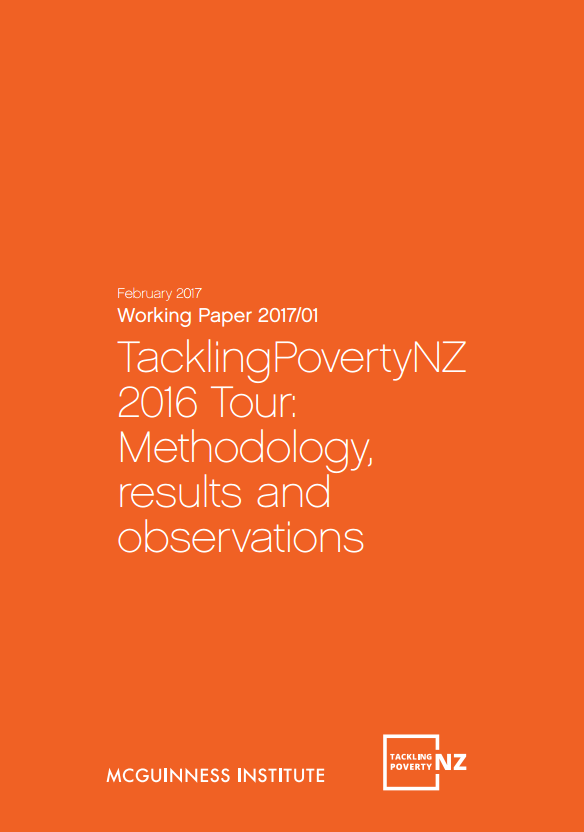As part of the follow-up to the 2016 TacklingPovertyNZ workshop tour, we will be posting one blog a day over the next few weeks to accompany the workshop speaker videos published on our YouTube channel.
Watch Blair Peters and Ebba Raikes, members of the Far North District Youth Council, share their thoughts on the problems that impoverished youth face in the Far North at the one-day Kaitaia TacklingPovertyNZ workshop on 15 September 2016 in the video below.
Blair and Ebba are both members of the Far North District Youth Council, the first Youth Council to be established in the Far North. Blair is also a Kiwi Advocacy Kaimahi, which sees her spending time at schools promoting conservationism and connecting children with the land, while Ebba is also a registered nurse. They share their thoughts as young people who have grown up in the Far North community and are passionate about making a change.
Blair and Ebba shared three key points surrounding the problems faced by young people living in poverty and the various ways these problems could be overcome. A common theme throughout the presentation was the notion of inspiring young people to have the self-confidence to pursue opportunities and have a positive impact on their community.
- Connecting people back to the land: Blair reminds people that the traditional lifestyle of the Far North community has always been to live off the land and use the available resources to provide for whānau, yet horticultural knowledge and skills have not been passed down to younger generations to pursue this potential. She suggests that schools should create ‘kai gardens’ to teach horticulture as part of the curriculum. This would enable young people to take that knowledge home, to lessen their grocery bills, and to open up more community days for whānau to learn how to grow basic gardens.
- Employment – ‘the elephant in the room’: Blair acknowledges that the prospect of university is often too heavy a financial burden but also mentions stigmas that present barriers for young people trying to enter an industry. She says that employers assume firstly, that young people always leave the place they were trained and secondly, that some of the best young people are lazy. To address this, Ebba suggests life skills workshops at secondary schools to teach youth how to attend interviews, how to write CVs, and how to improve their financial literacy. Blair highlights the critical need for positive role models to encourage youth to pursue their own paths and seek opportunities, and praises the opportunities for work experience she gained in the NCEA subject Gateway.
- Health affordability, accessibility and literacy: Ebba asserts that costs for GPs and medical prescriptions are too high. She also explains that geographical constraints faced by isolated rural communities mean that there is a need for registered nurses and youth health clinics in schools. Young people need positive environments in which to get medical attention from professionals who ‘speak their language’. Additionally, schools should provide more education about health literacy and general personal health management, and should promote the services available in the area.
Following their presentation, Ebba and Blair showed a video on the differences between inequality and equity that is available below.
About the TacklingPovertyNZ 2016 tour
The 2016 tour was a response to a 2015 three-day workshop that brought together 36 participants aged 18 to 25 representing a diverse range of backgrounds from throughout New Zealand. Participants found that ‘assuming that one solution will work everyone indicates a failure to address cultural disparities and injustices, and an ignorance of the diversity of our population’. The purpose of the 2016 tour was to build and share ideas on how to tackle poverty, come up with local solutions and connect like-minded people within communities.
The Kaitaia workshop was one of six, along with workshops in Queenstown, Manawatu, Rotorua, Gisborne and Kaikohe. A discussion paper for each area visited has been published on our website. These papers are specific to each community and together form a series showcasing insights from individuals who attended a one-day workshop in their local community.

To learn more about the tour, read Working Paper 2017/01 – TacklingPovertyNZ 2016 Tour: Methodology, results and observations here. This paper brings all the outputs from the six workshops together and aims to illustrate the diverse range of challenges and opportunities existing in communities.
In 2017 we would like to build on these findings. There was a lot to learn and digest, and we are still working through what this means in terms of public policy.
To stay up to date with Project TacklingPovertyNZ, subscribe to the newsletter.

